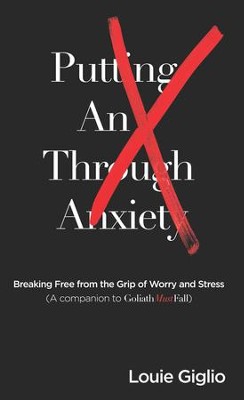Messiah, Our Passover Lamb
Description
The LORD said to Moses and Aaron in Egypt, “This month is to be for you the first month, the first month of your year. Tell the whole community of Israel that on the tenth day of this month each man is to take a lamb for his family, one for each household.… The animals you choose must be year-old males without defect … Take care of them until the fourteenth day of the month, when all the members of the community of Israel must slaughter them at twilight. Then they are to take some of the blood and put it on the sides and tops of the doorframes of the houses where they eat the lambs … and when I see the blood, I will pass over you” (Exodus 12:1-3, 5-7, 13).
The Passover Exodus is the watershed event in Jewish history. Indeed, it is a momentous event for all mankind. Many Believers don’t fully comprehend the Passover in the context of the awesome deliverance and redemption of God it foreshadowed. In fact, understanding the Passover will deepen your understanding of who Jesus is and what He has done for us.
All the biblical festivals and observances were foreshadows of the redemption that the Messiah would ultimately bring. The entire Gospel of John, for instance, uses the Passover as the backdrop for his retelling of the atonement now provided to us through Yeshua, the Messiah. The author of the book of Hebrews uses Yom Kippur, the Day of Atonement as the backdrop for revealing how Yeshua, as our high priest, has made eternal atonement for us by going into the holy of holies “once and for all” with His own blood.
The word Passover comes from the Hebrew word pesach, which means “shelter.” Interestingly, the Aramaic word for lamb is talya, which can mean either “lamb” or “servant.” Isaiah 53, often referred to as the “suffering servant” chapter, describes Yeshua as a “lamb led to the slaughter who did not open his mouth.” In fact, Jesus is referred to as “the lamb” 34 times in the New Testament.
The parallels between the Passover Lamb and Yeshua are extraordinary. Let’s take a closer look.
The Lamb Was to Be Without Blemish
“The animals you choose must be year-old males without defect, and you may take them from the sheep or the goats” (Exodus 12:5).
The Passover lamb, according to the ordinance of Pesach, was to be in the prime of life and without blemish. Blemish refers to sin. Yeshua, our final and perfect atonement, lived a sinless life. We are told that we have been redeemed out of sin not with corruptible things such as silver and gold, but with the precious blood of the Messiah—as a lamb without blemish or defect (1 Peter 1:19). Why? Because God made Him who had no sin to be sin for us, so that in Him we might become the righteousness of God (2 Corinthians 5:21).
Each Household Needed a Lamb
“. . . a lamb for each household” (Exodus 12:3).
The Word of God is explicit in the Prophets and the New Covenant that all have sinned. There is not one who is righteous. That is why everyone needs atonement to have a personal relationship with God. Just as each household required a lamb, the Word of God is clear in the Scriptures that all have sinned and fallen short of the glory of God; what we consider righteousness before Him is really like filthy rags (Isaiah 64:6). Every individual needs atonement, a sacrifice for his sins.
The Whole Community of Israel Required a Lamb
“all the members of the community of Israel . . .” (Exodus 12:6).
At the heart of Christian anti-Semitism is the false accusation that the Jewish People killed Jesus. During the Holocaust, Jewish People were told they were being punished for killing Christ as they were led to the gas chambers. But this concept was nothing new. It began in the very early foundations of the Church.
Were the Jewish People responsible for killing Jesus? No. Matthew 20:19 says He would be handed over to the Gentiles and be mocked and flogged and crucified. So did the Gentiles kill Yeshua? No. Who really killed Jesus?
Exodus 12:6 says that all of the community was to kill the Passover lamb. The Messiah, our Passover Lamb, died for the sins of the entire world—that those who believe in Him shall not perish but have everlasting life. Yeshua made it very clear in John 10:17-18 that He alone had the authority or power to end His life—that He GAVE or laid down His life freely that the Scriptures would be fulfilled. If He hadn’t laid down His life for us, we would have no redemption. The whole assembly killed Yeshua because He had to die and chose to die for us as our Passover Lamb.
The Passover Lamb Was to Be Slain In the Evening, But Not to Remain till Morning
“Do not leave any of it [the Passover lamb] till morning” (Exodus 12:10). The Gospel accounts make it absolutely clear that Yeshua is the sacrificial Passover Lamb. They record that He was crucified at the same time that the Passover lambs were being slaughtered, and that He was taken down from the tree before evening. He was hung upon the Roman execution stake, upon which the victim would suffer, yet not die for many hours. The executioners would eventually break the legs of the victim to hasten death, yet the Passover Lamb was not to have any broken bones. The Gospel accounts tell us that the legs of the prisoners on either side of Jesus had to be broken, but when the Roman soldiers came to Yeshua and saw that He was dead already, they did not break His legs (John 19:33). Even in this detail we have a record of Yeshua fulfilling the ordinances of Passover.
When I see the Blood . . .
“When I see the blood, I will pass over you” (Exodus 12:13).
In Exodus 12:7, we see the introduction of the blood—the precious blood of the Passover Lamb, which brings redemption.
Judaism as God instituted it was a nation called out to be connected to God inseparably. But sin separates us from that precious fellowship with Him. We need atonement for that sin. The solution is at the very root of Judaism. In Leviticus 17:11, God said: For the life of a creature is in the blood, and I have given it to you to make atonement for yourselves on the altar; it is the blood that makes atonement for one’s life. Without the shedding of blood, there is no atonement. God called Israel out to be a nation under Him to show the world that He is the One True God. In Deuteronomy 6:4, Moses exhorts the Israelites with these words: Hear, O Israel: the LORD our God, the Lord is one! God called out a separate people, recognizing that no man could keep His Law perfectly.
But at the center of the Law is God’s gracious provision—life for life. In each of the homes of the Israelites and Egyptians in Egypt that night, an innocent life had to be taken to spare the life of the firstborn of each family.
Here again is a fundamental principle of the Good News—all have sinned and are guilty. God has pronounced judgment on all. But He makes no distinction between race, creed, or color—whether you’re Jewish or Gentile. It is not by your works that you obtain righteousness or right standing before God, but it is a gift of God. The wages of sin is death.
This was God’s judgment upon the inhabitants of Egypt—Egyptians and Israelites alike. That night the angel of death was to smite all the firstborn, including the Israelites. But the blood was to be a token upon the houses. God promises: When I see the blood, I will pass over you (Exodus 12:13). This is the very center of Passover and the Good News—in this the Gospel is summed up.
I never learned these things growing up. Passover to me meant the meal and getting together with family, but there was never any concept in my Judaism of blood or sin. I was taught about the God of Abraham, Isaac, and Jacob and learned about the biblical figures, but never truly understood that God is alive and His Word is alive, and I am a sinful being in need of atonement. I never appreciated that deliverance in a deep and meaningful way. Yet we the Church also lack that appreciation if we don’t appreciate the Old Covenant Scriptures—we have missed the deep understanding of God’s character as Deliverer and Provider.
We are told in the Prophets 750 years before Yeshua was born that One would come and would die for our sins. He would be without sin, yet it would please God to bruise Him and to lay upon Him the iniquity of us all (Isaiah 53). Yeshua said, “I am the gate; whoever enters through Me will be saved” (John 10:9). Why? Because He is the Passover Lamb who shed His blood so that we can apply it to the doorposts of our hearts, and cause the angel of death to pass over.
The Good News
Jeremiah 31 promises that, “The days are coming,” declares the LORD, “when I will make a new covenant with the people of Israel and with the people of Judah. It will not be like the covenant I made with their ancestors when I took them by the hand to lead them out of Egypt, because they broke My covenant, though I was a husband to them. … I will forgive their wickedness and will remember their sins no more” (vv. 31-32, 34).
In 750 B.C. the prophet Jeremiah declared the expectation of the Jewish Messiah who brought about this New Covenant in His blood by which all may receive forgiveness and God’s own Torah will be written on our hearts. A Jew without a Messiah is as incomplete as Christianity without its Jewish roots.
It is rooted in Judaism that we come to understand the sinful condition of mankind and the glorious graciousness of our God who provided this atonement in the death and resurrection of His own flesh. We need to understand the Old Covenant and the grace of God to understand and appreciate the new. The Passover service teaches us this, taking us through the story of the deliverance of the Hebrew children by the hand and grace of God—not only out of the land of Egypt, but also the deliverance from death by the blood of the Passover Lamb. As you celebrate Passover, you will see this great miracle and gain a greater understanding of God’s love for mankind.
And lest you think that celebrating Passover is only for Jews, Exodus 12:48 tells us the Lord made provision for the “foreigner” among His people who wanted to participate in the Feast. Readers who are not accustomed to this celebration may feel like foreigners, but put your minds at rest. The apostle Paul said to the Corinthians, For Messiah, our Passover lamb, has been sacrificed. Therefore let us keep the Festival [Passover] (1 Corinthians 5:7-8). Concerning Pesach, God said in Exodus 12:14, “This is a day you are to commemorate; for the generations to come you shall celebrate it as a festival to the LORD—a lasting ordinance.” Clearly, from both the Torah and the New Testament, there is strong encouragement to keep the Passover.
Yeshua is the Jewish Messiah. He is the Passover Lamb. He is the Passover given to the Jewish People from God and the atonement given to the world. When God sees the blood applied to the doorposts of our hearts, the angel of death will pass over. This is the declaration of Passover—the Good News—the grace and power of God unto salvation!
 Overcome challenges with guided prayer, journal prompts, and God’s wisdom using iDisciple Growth Plans.
Overcome challenges with guided prayer, journal prompts, and God’s wisdom using iDisciple Growth Plans.

-12.png)



